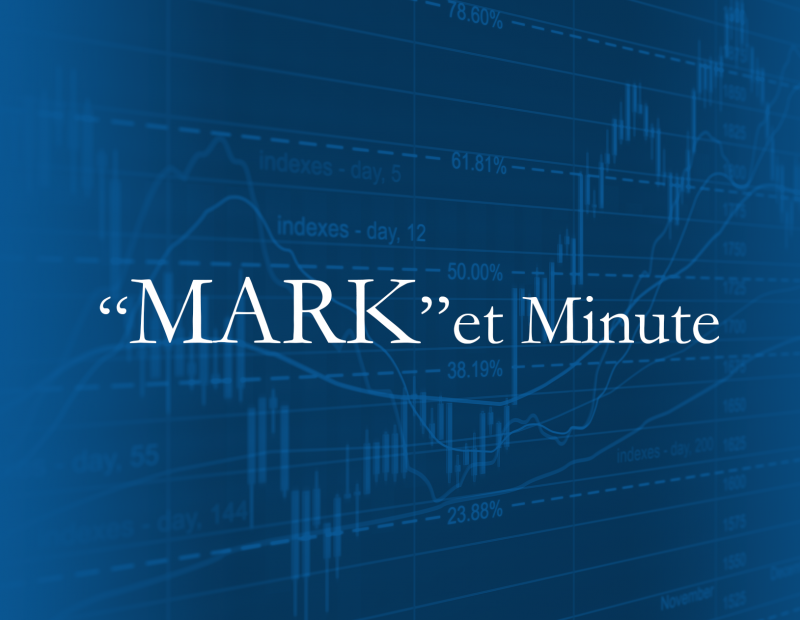Investment Commentary – July 13th, 2016
Market Indices as of Market Close July 13th, 2016
Dow 18,371 (5.43% YTD)
S&P 2,152 (5.31% YTD)
NASDAQ 5,005 (-0.03% YTD)
Global Dow 2,376 (2,033 52 week low /2,568 high)
10-year Treasury 1.47 (1.32 52 week low /2.45 high)
Gold 1,344 ($1,049 52 week low /high $1,378)
Oil $45.01 ($32.22 52 week low /high $56.51)
S&P 500, Dow close at new record highs
The Dow Jones Industrial Average and the S&P 500 Index turned in another day of record closing highs Wednesday. The Dow industrials DJIA, +0.13% rose 24.45 points, or 0.1%, to close at 18,372.12, for its second record closing high in as many days. The S&P 500 Index SPX, +0.01% advanced 0.29 points to close at 2,152.43, for its third record closing high in as many days. The Nasdaq Composite index COMP, -0.34% declined 17.09 points, or 0.3%, to finish at 5,005.73, wiping out its fractional gain on the year seen on Tuesday.
JP Morgan Thought of the Week
Financial markets are still digesting the economic and political ramifications of the UK vote to leave the European Union. The shift in US monetary policy expectations post-Brexit has been particularly dramatic. This week’s chart compares the probability of a rate hike in
September and December at the start of the year with current expectations. It seems that unless there is a startling turnaround in jobs growth, inflation and/or business spending, most market participants do not expect another rate hike this year. The prospect of US
interest rates remaining lower for even longer and for further easing from other central banks has seen the amount of global fixed income assets yielding below 0% jump by $1 trillion since the Brexit vote to over $11 trillion.
U.S. economy shows few signs of sustained inflation pressure: Fed
The U.S. economy continued to expand from mid-May through the end of June but there was little indication that inflation would surge any time soon, the Federal Reserve said on Wednesday.
Wage pressures were “modest to moderate” in most of the central bank’s districts and price pressures remained slight, the Fed said in its Beige Book report of anecdotal information collected from business contacts across the country.
Fed policymakers have been spooked by a lack of sustained progress in moving inflation up to the central bank’s 2 percent target as well as by a global growth slowdown. U.S. business investment also has been weak for two straight quarters.
The Fed raised interest rates in December for the first time in nearly a decade but has held off further increases this year.
Despite a strong rebound in U.S. job growth in June, traders see the Fed keeping rates on hold until at least mid-2017
THIS DAY IN FINANCIAL HISTORY:
General Motor Deflates
On this day in 1998 things went from bad to worse for auto giant General Motors (GM). The company was already dealing with a large workforce strike when they were forced to recall 800,000 vehicles due to malfunctioning airbags. The problem was the super sensitive airbag deployment device that caused the airbags to inflate by the smallest provocation. This blow to the company caused GM to lose 1.5 points in the stock market.
The views presented are not intended to be relied on as a forecast, research or investment advice and are the opinions of the sources cited and are subject to change based on subsequent developments. They are not a recommendation, offer or solicitation to buy or sell any securities or to adopt any investments.
http://www.jpmorganassetmanagement.lu/en/dms/GTTM%20Weekly%20Market%20RECAP%20
http://www.econedlink.org/economic-calendar.php?month=7
http://www.marketwatch.com/story/sp-500-dow-close-at-new-record-highs-2016-07-13


Leave A Comment